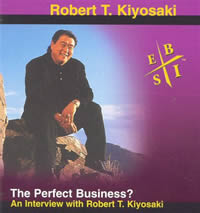How to Write a Winning
Small Business Marketing Plan
The highest “payoff” section of a winning business plan is a well-written Small Business Marketing Plan. Though it is not the first section of a business plan outline, it is arguably the most important. A business succeeds by selling its product to repeat customers. There’s no surprise there. No one buys a product if they don’t know about it. The purpose of a small business marketing plan is to determine how people are going to know about your product.
Here are the Components of a Small Business Marketing Plan:
Lead Generation
Marketing Strategy
Implementation
Sales Tactics
Advertising
Conversion (Promotion / Incentives)
To write an effective small business marketing plan, you need to have a firm grasp of marketing fundamentals and methods. Read the following two short reports. They will arm you with the basic knowledge needed to write an effective plan.
Eight Basic Principles of Marketing
Ten Common Marketing Mistakes
Building a small business marketing plan involves a Four-Stage Process.

A good marketing plan is take prospects and “convert” them through these Four Steps.
Lead Generation
A well-written small business marketing plan will first address how leads will be generated. Your business will not have people coming to you – in the beginning. Eventually, your business will get to that point. First, you will have to start with leads. How will you get them? Some examples: website search engine traffic, friends and family, advertising, or purchased leads (e.g. someone else has done the work for you). The remainder of the plan addresses how you will flow those leads through the funnel.
Marketing Strategy
Leads must be pulled through the funnel – they cannot and will not be pushed. A Small Business Marketing Plan must address how that conversion will take place at each stage. People are only pulled by an enticing offer. Your marketing strategy must identify how and why they will be interested. What will you offer your Leads (e.g. complete strangers) to generate interest and create a Prospect? How will you convert that Prospect into a Customer (e.g. what will you offer them to make them want to buy)? What will you offer Customers for them to come back?
What type of prospecting methods will you use? “Prospecting” refers to the process by which you will “find” those Leads you are really Prospects – finding those who are interested. They will not run to your door – remember, they must be pulled.
Implementation
You know where your leads will come from. And you have a general gameplan to flow them through the funnel. Now it’s time to get into the details – the How. How will you deliver your offers? How, When, and Where will you advertise?
How will you initially contact your Leads?
How will you stay in contact with your Leads?
Sales Tactics
How will you posture your offers so the prospect is interested? What will be your primary closing strategies? There are many great books that offer proven and successful closing techniques. Check out our Top Ten Sales Books for the best.
Advertising
What kind of advertising methods and campaigns will you use? Some examples: Classifieds, e-mail, pay-per-click (PPC) search engine traffic, writing articles, link exchanges, forums, magazine/newspaper ads, bumper stickers, business cards, refrigerator magnets direct mail (postcards, letters), the Yellow Pages, flyers, Internet chat rooms, professional organizations, etc. The ideas are endless. To help you generate ideas, check out our Top Ten Marketing Book list.
Conversion Statistics
At each stage of the Marketing Funnel, there will be attrition. Obviously, not all Leads will Prospects and so forth. A small business marketing plan must address the conversion rate at each stage. There are two ways to approach this:
1) Assume conversion rates – and then determine the revenue that will generate.
2) Start with desired/expected revenue – and then determine the conversion rates required to achieve that goal.
Conversion statistics are a critical element that will tie later into your financial projections.
Either way, you will need to research the standard conversion statistics for the industry you have chosen.
Use these as a benchmark only. The number one factor that will affect your conversion statistics is your skills as a marketer and business owner.
A great resource to learn those skills and to develop a small business marketing plan is: Leaders Club.
Request the FREE Home Business Success Pack to learn more about common home business mistakes.
Click here to return to
Business Plan for Home Business
More to a Small Business Marketing Plan
_________________________________________________________

"Money is important, but I don't
want to spend my life working for it."
-Quote from Rich Dad's CASHFLOW Quadrant
The Perfect Business CD is a 25 minute
audio interview that introduces you to
Robert Kiyosaki and his philosophy on
The Perfect Business.
...and We Want To Give You A Copy Free
Click Here For Your Free Perfect Business CD
Learn to Build a Small Business Marketing Plan
_________________________________________________________
¦ About Us ¦ Contact Us ¦ Our Partners ¦
¦ Site Map ¦ Links ¦ Home Business Consultants ¦ © Copyright 2005. Home-Business-Expert.com